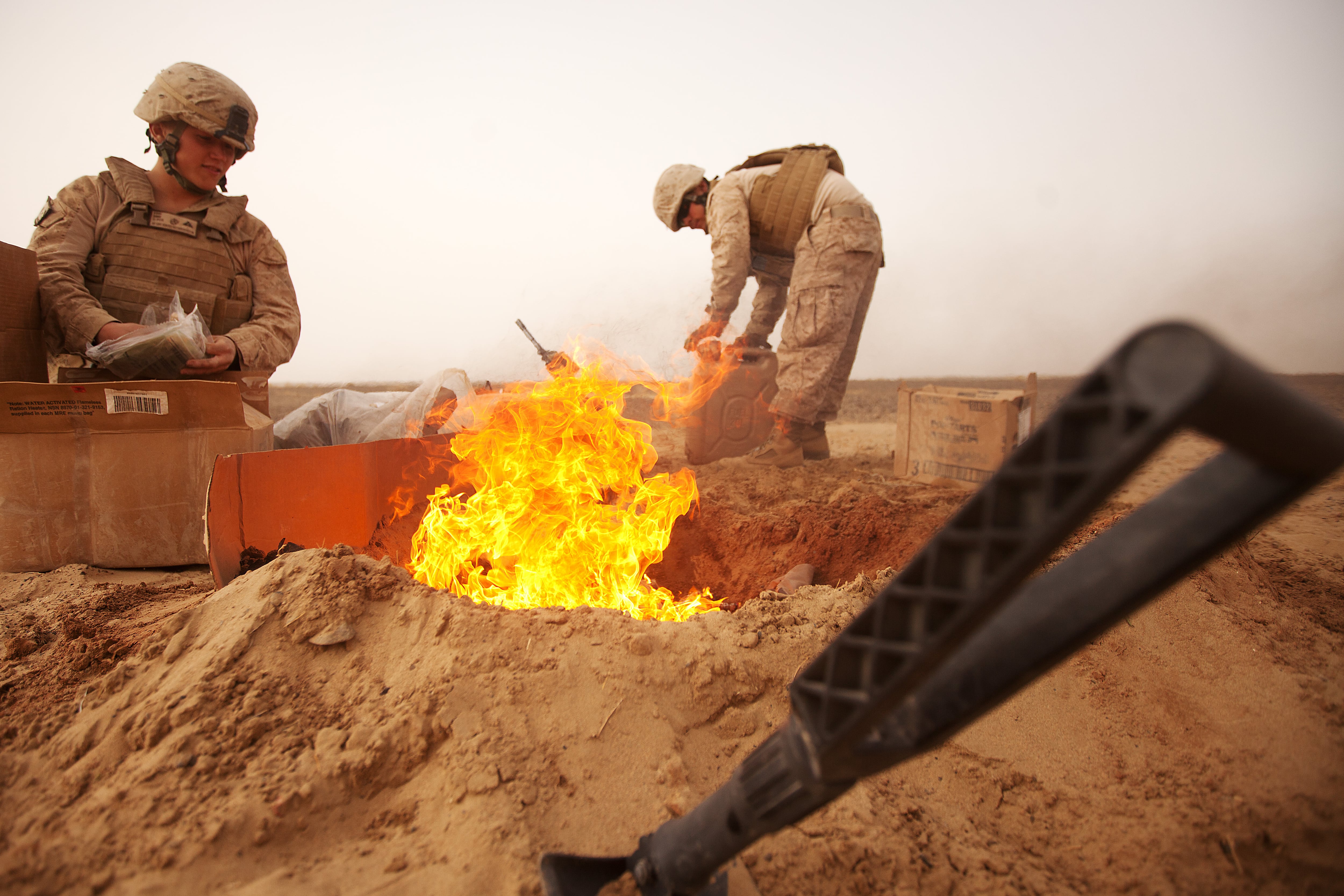The Defense Department's failure to follow regulations on solid waste disposal, along with its practice of burning prohibited items in burn pits in Afghanistan put U.S. troops' health at risk, says the chief watchdog for Afghanistan reconstruction.
In his final report on the use of burn pits and incinerators in Afghanistan, John Sopko, special inspector general for Afghanistan reconstruction, accused the Pentagon of being unprepared for waste disposal at the start of Operation Enduring Freedom and said continued use of burn pits put troops at unnecessary risk from potentially harmful emissions.
According to Sopko, DoD "had been aware for years" of the health risks posed by burn pits and called their use — even after policies were adopted to restrict it — "disturbing."
"It is indefensible that U.S. military personnel, who are already at risk of serious injury and death when fighting the enemy, were put at further risk from the potentially harmful emissions from the use of open air burn pits," Sopko wrote in the "Final Assessment: What We Have Learned from Our Inspections of Incinerators and Use of Burn Pits in Afghanistan," released Thursday.
The Office of the SIGAR was established to ferret out waste and fraudulent use of U.S. taxpayer money in rebuilding Afghanistan.
The U.S. has spent more than $104 billion for reconstruction, with Sopko's office recovering more than $570 million from criminal fines, restitution, forfeitures, civil settlements and cost-savings, according to SIGAR reports.
SIGAR previously had released four reports on burn pits and incinerators in Afghanistan, and the final study summarized them, noting that the Defense Department spent more than $20 million on eight never-used incinerators and ignored its own policies.
"[U.S. Central Command] officials told us that no U.S. installation in Afghanistan has ever been in compliance with Regulation 200-2," noted Sopko, referring to the regulation that required bases accommodating more than 100 troops for longer than 90 days to install advanced waste disposal technologies.
Saying DoD was unprepared for effective waste management at the start of combat operations, burn pits "provided an easy answer" for getting rid of trash but this did not excuse DoD's continued use of the pits after building incinerators, according tot he report.
The U.S. built a total of 23 incinerators in Afghanistan at a cost of nearly $82 million.
Sopko urged the Pentagon to develop waste disposal plans prior to the next contingency operation and said the department should hold contractors accountable for projects.
The Defense Department maintains that the SIGAR reports do not account for the "difficult and complex operational environment that led commanders to make some very difficult decisions" about burn pits.
In a response to the most recent report, Army Maj. Gen. John Murray, deputy commander for support for U.S. Forces Afghanistan said for lessons to be applied in future operations "the reader must have a full understanding and appreciate the difficult conditions that heavily influence commanders."
Burn pits were used in Iraq and Afghanistan to dispose of everything from paper trash and food waste to plastic bottles and human and medical waste, according to personnel who lived and worked near the sites.
The pits produce large amounts of smoke and gas that may pose a health hazard, although scientific data has not proven any long-term health consequences related to breathing the pollution.
The VA established a burn pit registry in October to track the health of individuals who believe they were exposed to pollutants from burn pits or other airborne hazards in Iraq and Afghanistan, such as dust and sand.
As of January 26, 30,711 people have enrolled in the registry, according to VA.
Hundreds of troops have reported medical problems they believe are related to living and working near the pits, from rare pulmonary diseases and unexplained rashes to cancer.
Patricia Kime is a senior writer covering military and veterans health care, medicine and personnel issues.





